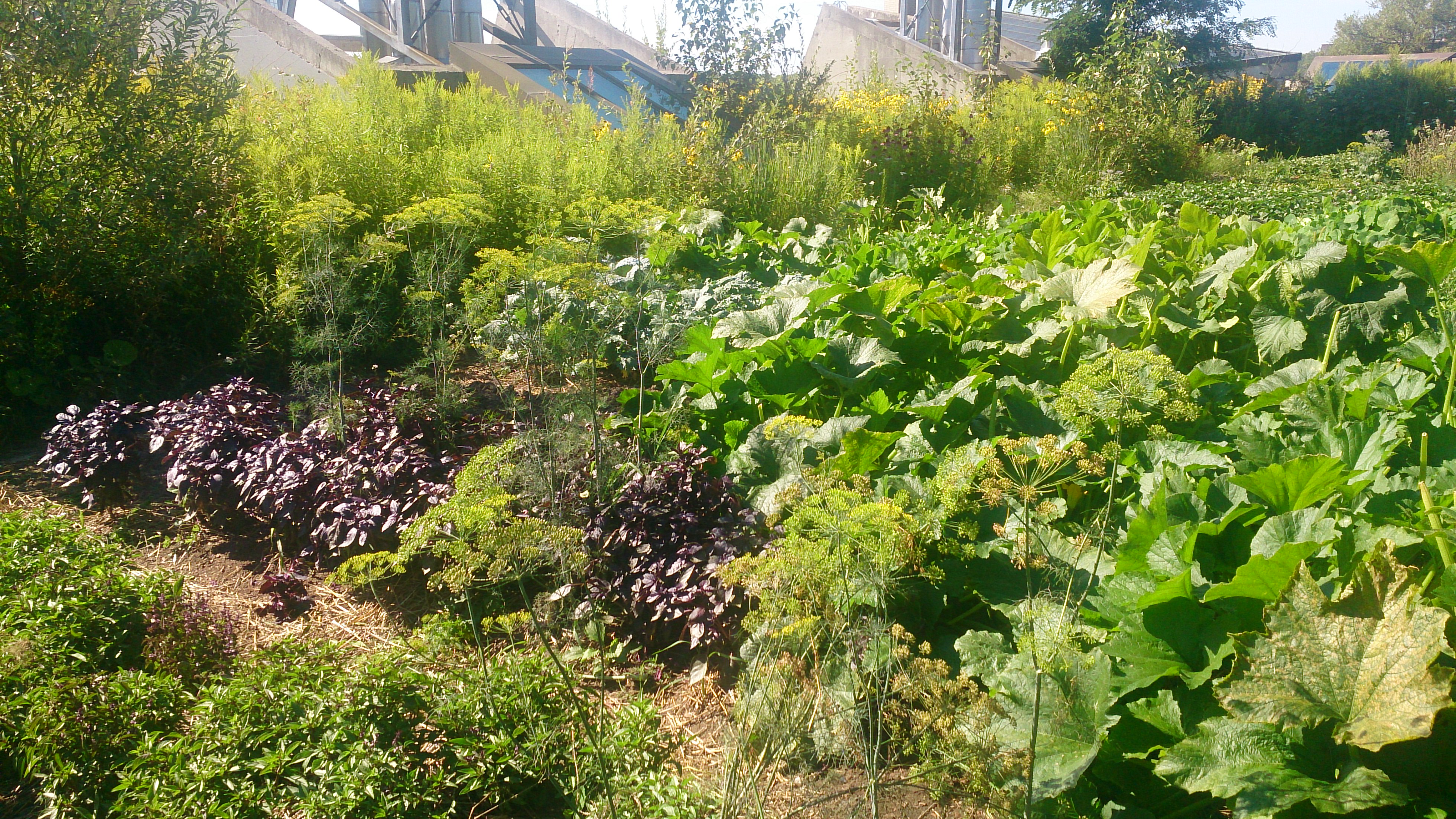
Something good is growing at Trent. Something succulent and delicious. Hidden amongst the crowds of students, orientation week activities, labs and lecture halls are luscious organic gardens bursting with mouth-watering produce just waiting to be discovered.
Alright, truthfully there are only two of these gardens, and they are not actually hidden. However, if you don’t know about them already, you might not happen to stumble upon them either. You may or may not know that Trent has a history of involvement in campus-based sustainable agriculture projects as well as student-led food sovereignty initiatives. Trent’s rooftop garden is a landmark project in this regard and has been a pioneer among campus, rooftop and urban agriculture movements across the country.
 The scenic rooftop garden sitting on top of the environmental science complex is a site you don’t want to miss at Trent. Up the stairs to the third floor and through door B305.1, you will find yourself not in another seminar room, but in a picturesque garden bursting with fresh fall veggies of all colours, shapes and sizes.
The scenic rooftop garden sitting on top of the environmental science complex is a site you don’t want to miss at Trent. Up the stairs to the third floor and through door B305.1, you will find yourself not in another seminar room, but in a picturesque garden bursting with fresh fall veggies of all colours, shapes and sizes.
The rooftop is just one of two garden sites run by the Trent Vegetable Gardens (TVG), a volunteer-driven levy group at Trent University. The other garden site is a half-acre field located behind the DNA and Life Sciences buildings.
There are lots of good things growing in the Trent Vegetable Gardens, including fresh, delectable crops such as squash, sweet potatoes, tomatoes, peppers, eggplants, beans, onions, garlic broccoli, beets, carrots, and fall greens of all kinds.
The gardens take inspiration from organic, intensive, permaculture, and Indigenous agricultural methods, and strive to practice low-impact ecological agriculture. Part of the TVG mission is to offer experiential learning opportunities and hands on gardening skills to students and community members so that everyone can participate in growing these good things too.
However, crops are not the only thing being grown in the Trent Vegetable Gardens. The gardens endeavour to cultivate a connection within the community to the source of their food and an understanding of food systems issues.
Ever wanted to find out why that heirloom tomato from the garden or farmers market tastes so much better than the one from the grocery store? Or how agro-ecological practices help protect ecosystems, preserve the soil and enhance human health? What is the whole locovore movement anyhow, and why does local food have a reduced environmental footprint, support local economies and help build communities? The TVG encourages you to engage with these questions and more.
Getting involved in the Trent Vegetable Gardens is also a great way to grow connections and a sense of community involvement during your time at Trent.

There are so many ways to get growing and take part in the gardens including coming out to a workshop or community work day, taking part in a student research or service learning project, becoming a volunteer or simply stopping by to take a tour or lend a hand with the harvest. The TVG also manages a campus community garden with twenty individual plots available to students and community members wishing to experiment with growing their own food in a supportive environment.
You may in fact already be participating in the gardens without even knowing it. Have you ever eaten at or do you plan to eat at the Seasoned Spoon Café? Most of the food grown in the Trent Vegetable Gardens is destined for the Seasoned Spoon Kitchen and ultimately your plate. This partnership between the Spoon and the TVG completes a sustainable field-to-table food system providing students with access to campus-grown foods at affordable prices.
Drop by the Seasoned Spoon anytime to taste the difference! The TVG eagerly
welcomes anyone who is interesting in getting involved with this field-to-table food journey, so please, email us (trentvegetablegardens@gmail.com), follow us on social media, visit our website (http://trentgardens.org/ ) or drop by the gardens for a visit.
